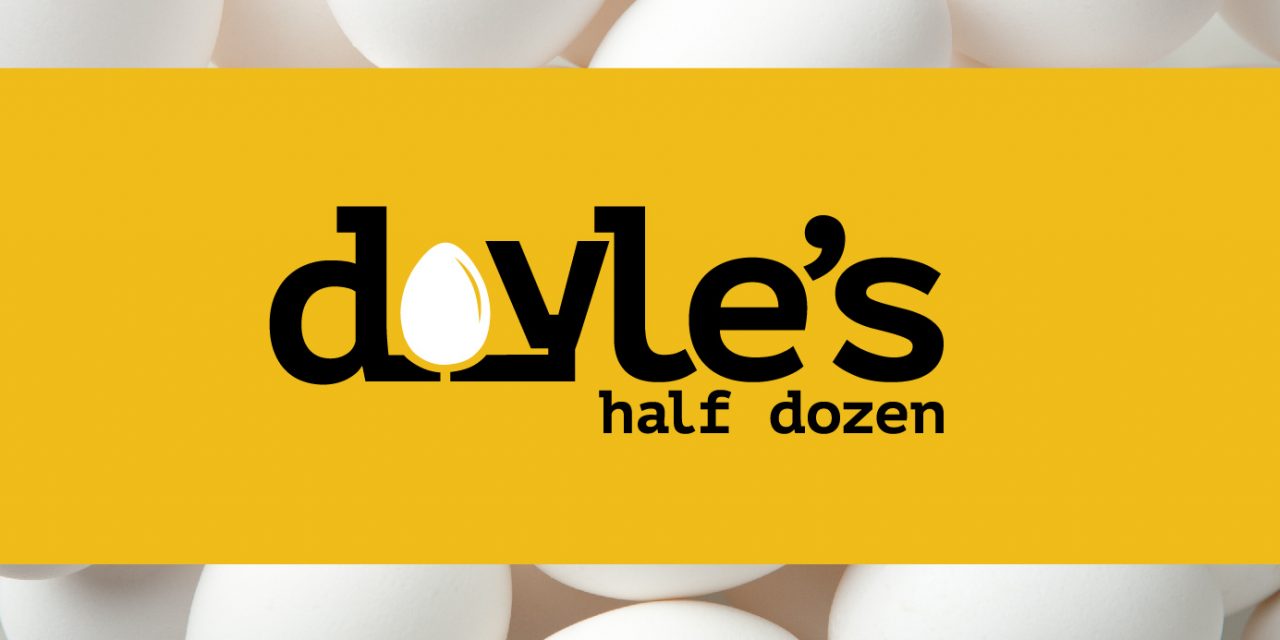Greetings!
Lots of interesting topics to discuss this week in another edition of DHD.
Thanks for reading!
- SCOTUS and abortion rulings
The biggest news from a national intention this week happened in the U.S. Supreme Court (SCOTUS), as the highest court in the land heard oral arguments relating to the case Dobbs vs. Jackson Women Health Organization. This is considered to be a prestigious moment in American history, leading to the possible overturning of Roe vs. Wade and Planned Parenthood vs. Casey—two judicial rulings that allowed for abortion to be permitted nationally.
This is significant. If you value the Sanctity of Human Life, this is an encouraging sign. However, you may feel about Donald Trump’s presidency, he allowed for this encouragement to occur as he appointed three conservative judges to the Supreme Court. And without Justices Gorsuch, Kavanaugh and Barrett, this progress toward life would not happen.
Joe Carter has two great reads if you are not completely up on what happened with SCOTUS and this eventual ruling. First, check out “How Dobbs could change abortion in America.” Carter wrote this as a preview for Wednesday’s court activity. If you’re like me and may not be up on the concern of viability and its importance in the pro-life issue, Carter explains this well.
Second, read “Why Pro-lifers can be (cautiously) optimistic about Dobbs.” This is Carter’s follow-up and a good explainer of what happened in Wednesday’s hearing.
Here’s Carter’s conclusion:
While pro-lifers should be careful about reading too much into the oral arguments, we have reason to be cautiously optimistic that at least five justices are ready to overturn the evil precedent of Roe. Pray that God will lead them to make the right decision next June.
Notice Carter has projected SCOTUS will rule on this case in June, which is the usual time of year for the highest court to relay its rulings, especially on high interest cases. And, as Carter said, pray for God to lead these justices to make the right decision.
- Mohler on SCOTUS activity
Time and time again, Albert Mohler provides excellent insight on current issues. He did not disappoint with his commentary on SCOTUS this week.
In his Thursday’s Briefing, Mohler commends the opening statement of Scott Steward, solicitor general of Mississippi who said:
Mr. Chief Justice, and may it please the Court, Roe v. Wade and Planned Parenthood v. Casey haunt our country. They have no basis in the constitution. They have no home in our history or traditions. They’ve damaged the democratic process. They poison the law. They’ve choked off compromise. For 50 years, they’ve kept this court at the center of a political battle that it can never resolve. And 50 years on, they stand alone. Nowhere else does this court recognize a right to end a human life.
First off—and this is me, not Mohler’s commentary— I love the first sentence on Roe and Casey haunting our country. I don’t think the wording could be more powerful. Secondly, it’s hard to argue with the final sentence of the paragraph: “Nowhere else does this court recognize a right to end a human life.”
Here’s what Mohler said about that final sentence:
“That’s where for one of the rare times in the history of the United States, the personhood of the unborn actually showed up in the arguments made before the nation’s highest court. In my opinion, that makes this day historic even if nothing else had happened.”
There’s much more that Mohler said that is worth noting, but you would do well to either listen to the podcast or read the transcription.
- Mohler fields questions for listeners
Something new this year on The Briefing podcast is Mohler is answering questions he receives from listeners. This is a great addition. Mohler is a great advisor for Christians who have questions about current issues.
I appreciate Mohler’s response he gave to someone who asked what to think about historical figure Nelson Mandela:
“…Nelson Mandela simply reminds us,” Mohler responded, “even as of course, he held many positions that we would consider reprehensible, even though there were terrorist activities associated with the end of apartheid, the most important thing is that we recognize that in the complexities of history, there are very few human heroes.”
He also replied, “Nelson Mandela is indicative of so many of the moral fights, the moral struggles of the 20th century. And some of those struggles, even as they were righteous struggles, ended up being led by people who had very mixed moral backgrounds themselves. The point is this, the cause was right. Apartheid was unquestionably evil and it needed to come to an end. It’s one of the saddest complexities of human history that horrifying movements rarely come to an end without some kind of horrifying development.”
Another recent question Mohler answered involved how Christians should view how “social justice” is promoted today. Mohler emphasized to focus more on what could come under the description of “biblical justice.”
He said, “…our understanding should be that a straightforward understanding of justice as is revealed in Scripture and was preached by the prophets with social implications is not a different kind of justice than what we would rightly require in the classroom, in the family, on the playground, in a court of law, when it comes to personal or to social moral responsibility.”
And then Mohler pointed out what is usually the case for those promoting social justice:
“There are many people who will be ready to go march in the streets for what they demand as social justice, who also demand the right to flaunt that very same moral impulse when it comes to their own say sexual, gender or moral lives.”
- Thunder thoughts
The Oklahoma City Thunder made history last night, losing to the Memphis Grizzlies, 152-79. The 73-point defeat is the largest margin in NBA history.
So what does it mean? It means the Thunder are not very good this year, especially when their top player, Shai Gilgeous-Alexander, and other key players don’t play. It was also the second game of back-to-back contests, so there’s many elements to why this happened.
There’s not much else to take from this loss. There’s going to be a lot more this season.
They did have a good stint of success earlier this year, especially with two wins against the Lakers, and I expect them to have other successful moments this year. But consider it all for the best of the program, wins and losses, because it will help those on the team who are part of the future and it will help with who they will draft in the future.
- Sooners thoughts
Yeah, I’m guilty. I’m like other Sooner fans who are constantly scanning social media for updates on who will be the next OU football coach.
I can go along with the popular choice being Brent Venables getting the title. I also don’t have a problem if it were to be Dan Lanning, defensive coordinator for the University of Georgia.
My heart also was stirred when I heard Bob Stoops opening speech at Monday’s press conference. Sooner fans are fortunate that Coach Stoops is dedicated and willing to take on the head coaching rank for the moment until the next leader is named.
And I’m happy to read about the players who are committed to stay on. It is an encouraging response.
That’s all I’ll say for now.
- Did Jesus come to bring peace?
I conclude with a great column by Lifeway writer, Aaron Wilson. Check out “Did Jesus come to bring peace?”
In summary, what Wilson shares relates to eternal peace not as the world confusingly interprets peace.
“While Jesus will usher in eternal peace for His people at His second coming,” Wilson wrote, “the primary purpose of His first advent was to bring peace between God and sinners.”






